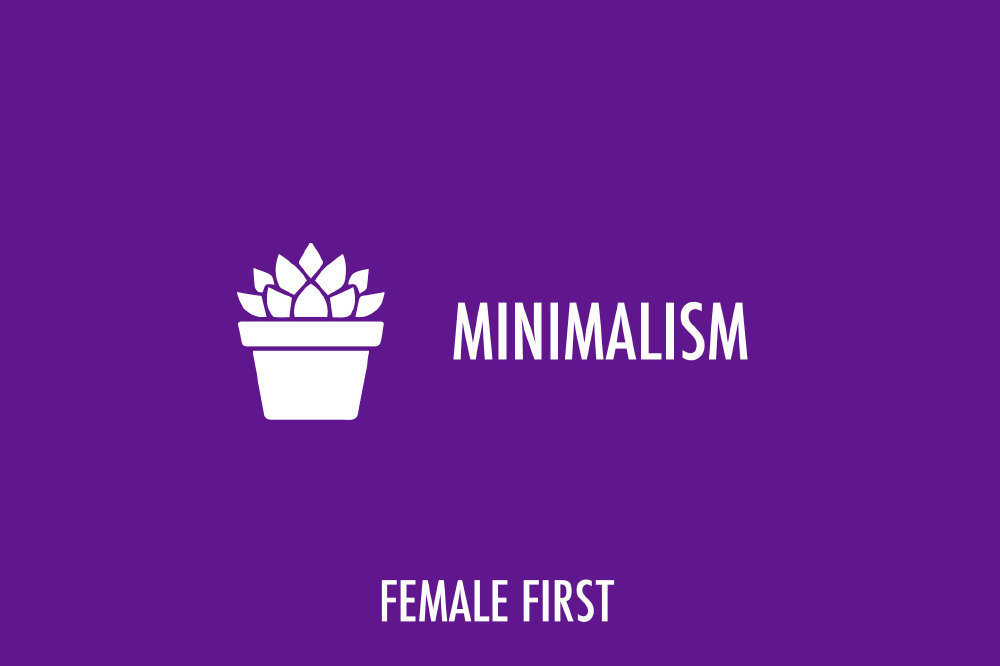Whether you are a seasoned declutterer or a newbie to the world of minimising, you may assume that the only cost of clutter is in the price of the item at purchase. Sadly, the reality is that there are other costs involved when you bring something new into your home, which you may or may not want to pay. As we go through each one, consider if these are costs you want to accrue- because you can reduce them with more intentionality.

Image courtesy of Pixabay
The cost at checkout: Everything costs something, even if you deem it to be a bargain or on sale, it still takes money out of your pocket. Think about how many hours you had to work in order to pay for the last item you purchased. Was it worth it? Maybe, but if someone had said to you, you have to work eight, sixteen or even fifty hours in order to have it- you may have decided against it. Ask yourself this question with every new purchase and see how you feel about it once you have worked out the number of hours you will have to work to pay for it.
The cost of time: When you want to buy something new, you give up some of your time to look for that piece online or in a store. This may not take you very long if you know exactly what you are looking for but often you don’t and browse to find the thing that fits the bill. Consider over your lifetime, how many hours you have spent scrolling or shopping for gifting/decorating inspiration, to find a new item of clothing, to see what comes up when you type in a keyword. All of this time adds up and when you think back- was it a meaningful way to spend your days? Probably not. What could you have done with that time? Memories are not built from shopping.
The cost of maintenance: Everything you own needs to be maintained in some way. Clothes need to be washed and pressed, trinkets need to be dusted, toys require new batteries, books need to be shelved, cars need to be serviced, shoes need to be polished. Everything you invite into your space has some element of maintenance attached. It all comes down to whether you want to do it or not. If you find joy in reading and having a lot of books, keeping them in order may be something you enjoy doing. However, if you no longer want to look at that decorative item that you religiously polish every week- why are you doing so? If you don’t want to maintain something you don’t have to- you can let it go.
The cost of fuel: Think of all the times you have made trips to the donation centre- how much has that cost you in fuel? If it’s a regular trip for you- probably a LOT. The more intentional you are with your spending, the less things you bring into the home that you will want to part with. Obviously some things are inevitable- clothes and toys that your children grow out of and things that break need to find their way out of your space, but the less you buy, the less trips you will need to make once you grow old of something.
The cost of energy: Like it or not, stuff takes its toll on our energy levels. Think about how exhausted you felt after your last house move, huge declutter or even the last time you redecorated. The more you have, the more tired you will feel after these events because the more you have to move around. Wouldn’t you rather feel tired from having moved things that mean something to you rather than simply moving junk?
The cost on your mental health: Ever felt overwhelmed by your things to the point where it made you feel sad? Superfluous stuff hits your mental health hard. The visual clutter takes up mental space leaving little room for the things that need clarity to thrive in your mind. You will struggle to be truly happy and content when there is no space left in your brain to dedicate to your values and doing the things you enjoy.
The cost on your relationships: Ever argued about money with your partner? Ever spent time looking for something to buy rather than giving them your full attention? Ever scrolled through your phone rather than playing with your kids? Ever hung up on your parents because you had a package to accept from the postman? Stuff steals time away from the people you love and care about the most. If you didn’t buy anything today or seek something out to buy later, how much attention could you dedicate to your family and friends?
The cost on your future: If you were to add up every purchase that you regret or feel guilty over, how much would that come to? Likely a lot. Now put that in terms of your future. Would that chunk of money equate to paying off a large credit card debt, or some of your mortgage? Could it have gone towards your retirement? What may have seemed like small purchases at the time all add up to something much larger. If you stop now, who knows what these little savings could add up to... it could be life changing.
For more articles on minimalism on Female First click HERE

Tagged in Minimalism

